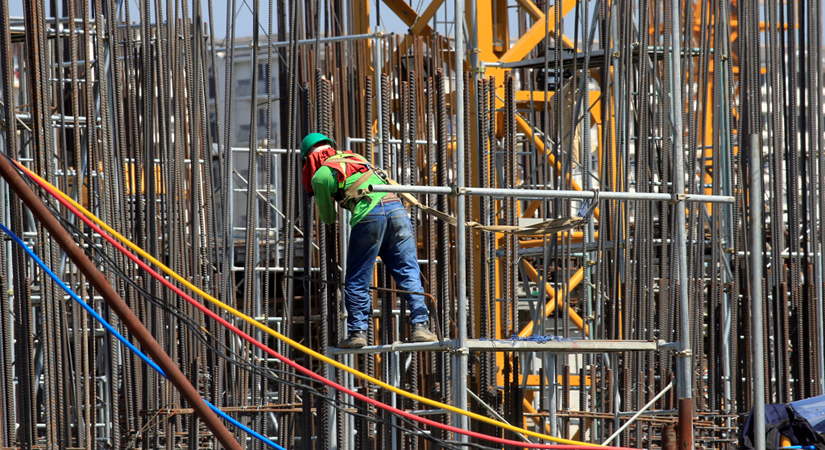By Beatrice M. Laforga, October 23 2019; Business World
https://www.bworldonline.com/state-spending-short-despite-sept-boost/
Image Credit to Reuters
STATE SPENDING rose by its fastest pace in almost a year and a half in September as the government rushed to make up for muted expenditures last semester, but even this boost was not able to ensure that the nine-month program was met, according to data the Bureau of the Treasury (BTr) released on Tuesday.
And with revenue collections growing by double-digit pace and a smaller year-to-date fiscal gap, the government also fell short of its programmed deficit.
SPENDING
National government expenditures jumped by 39.01% to P415.1 billion last month from the P298.6 billion a year earlier, its best performance since the 42.7% increase recorded in April last year.
Primary spending — which excludes interest payments and includes infrastructure expenditures — for the month climbed 39.89% year-on-year to P372 billion, while interest payments totaled P43.1 billion, up 31.88% from a year earlier, primarily due to coupon payments for reissued bonds and the five-year retail treasury bonds issued in March.
“The national government continued to catch up with its spending plan for the year where 71.2% of the P3.77 trillion full-year program is to be disbursed as of end-September despite the delay in the passage of the 2019 budget and the election ban in the earlier part of the year,” BTr said.
The nine months to September saw total state expenditures growing 5.51% year-on-year to P2.627 trillion, with primary spending picking up by 5.15% to P2.333 trillion and interest payments increasing by 8.26% to P293.7 billion.
Still, the government missed its P2.685-trillion spending program for those nine months by 2.14%, with primary spending missing a P2.367-trillion target by 1.42% and interest payments falling short of a P317.8-billion program by 7.56%.
REVENUES
The government raked in 16.89% more revenues at P236.5 billion in September from P202.4 billion a year ago.
Tax collections, which made up 89% of the total, increased by 15.15% to P211 billion in September from P183.2 billion.
The Bureau of Internal Revenue (BIR), which contributed 71.3% of tax collections and 63.6% of gross revenues, grew its take by 15.24% to P150.5 billion from P130.6 billion, while the Bureau of Customs, which contributed 27.9% to tax collections and a fourth to total revenues, raked in 15.13% more at P58.8 billion from P51.1 billion.
Non-tax revenues — including subsidies to cover taxes on government transactions — increased by 33.53% year-on-year to P25.5 billion, with collections of the Treasury climbing 48.83% to P10.7 billion and those of other offices rising 24.3% to P14.8 billion.
The nine months to September saw revenues climb 10.25% to P2.328 trillion from P2.112 trillion, with tax collections growing 10.3% to P2.091 trillion from P1.895 trillion and non-tax revenues increasing by 9.78% to P237.4 billion from P216.2 billion.
The same comparative nine-month periods saw collections of the BIR increase 10.98% to P1.603 trillion from P1.444 trillion, while those of Customs grew 8.15% to P470 billion from P434.6 billion.
Non-tax revenues increased by 9.78% to P237.4 billion from P216.2 billion, with Treasury collections climbing 31.05% to P118.6 billion from P90.5 billion, while other offices reported 5.54% less collections at P118.7 billion from P125.7 billion.
While the nine-months to September saw gross revenues exceed the P2.32-trillion target by 0.35%, tax revenues still fell 3.81% short of a P2.173-trillion goal, with the BIR missing its P1.674-trillion target by 4.25% and Customs missing its P481.1-billion goal by 2.29%.
On the other hand, non-tax revenues exceeded a P146.3-billion program by 62.19%, with the Treasury beating its P60.4-billion goal by 96.46%.
DEFICIT
Revenue collections and expenditures resulted in a P178.6-billion fiscal deficit in September that was 85.52% more than the year-ago P96.2 billion.
That resulted in a year-to-date fiscal gap of P299 billion that was 20.95% smaller than the P378.2 billion recorded in 2018’s first nine months.
Still, the year-to-date deficit was 18.03% off a P364.7-billion program for those nine months.
INFRASTRUCTURE AND GROWTH
Latest data which the Department of Budget and Management (DBM) released on Monday showed that infrastructure and other capital outlays were still down 13.2% year-on-year to P59.3 billion in August from P68.4 billion a year ago, with the eight months to August seeing such expenditures drop 11.8% to P446 billion — less then half the P1-trillion infrastructure spending program for 2019.
DBM attributed such smaller spending to late enactment of the 2019 budget that left new projects unfunded and the 45-day public works ban ahead of the May 13 midterm elections.
Sought for comment, DBM Undersecretary Laura B. Pascua said that she remains “hopeful” that infrastructure spending will meet the full-year program, explaining that “spending is traditionally up” this quarter.
Nicholas Antonio T. Mapa, senior economist at ING Bank NV-Manila Branch, said the performance of revenue-generation and state spending were both “impressive,” giving “hope” for a six percent full-year gross domestic product growth — after last semester’s muted 5.5% — “as expenditures roll out while the government continues to streamline and improve its collection efforts.”
“A resurgence in government spending coupled with still-robust and potent household spending will look to carry the load for 3Q GDP growth as capital formation remains handicapped and recovers from its meltdown in 2Q,” Mr. Mapa said in an e-mail.
“As capital formation regains form hopefully by 4Q, we can expect growth to return to form and close out the year on a strong note with the economy firing on all cylinders once more.”

